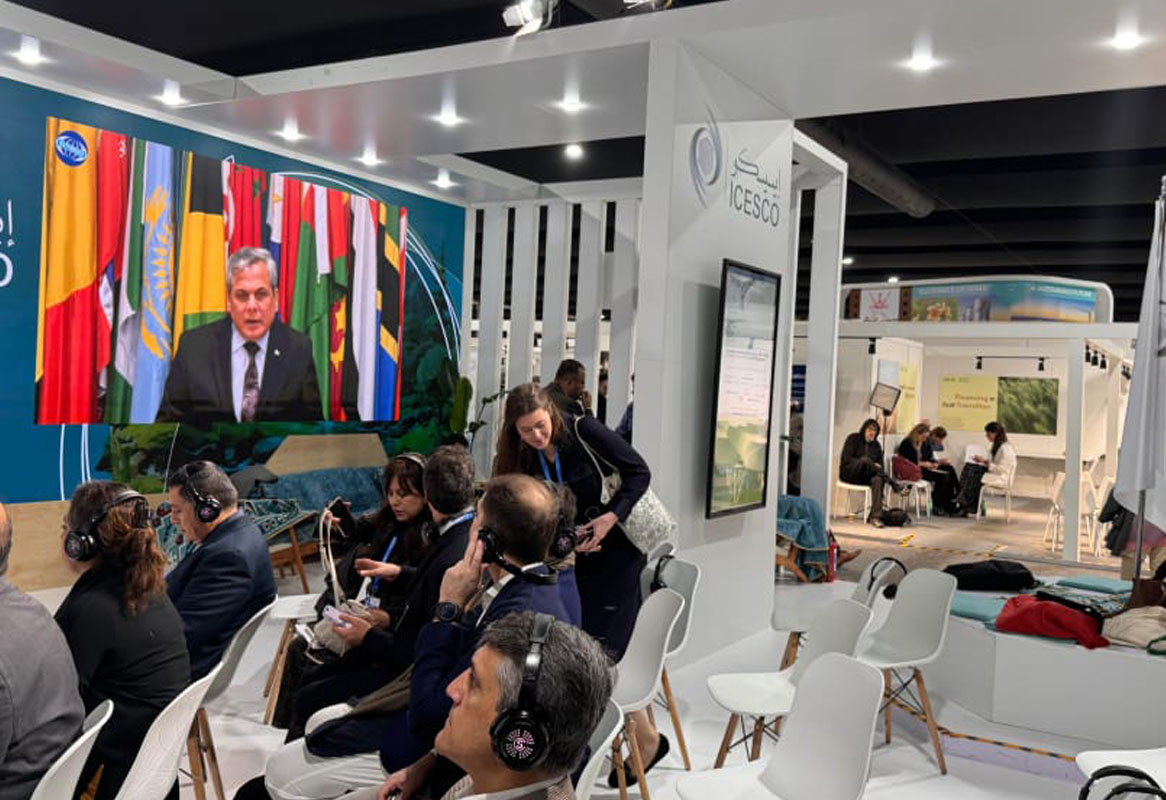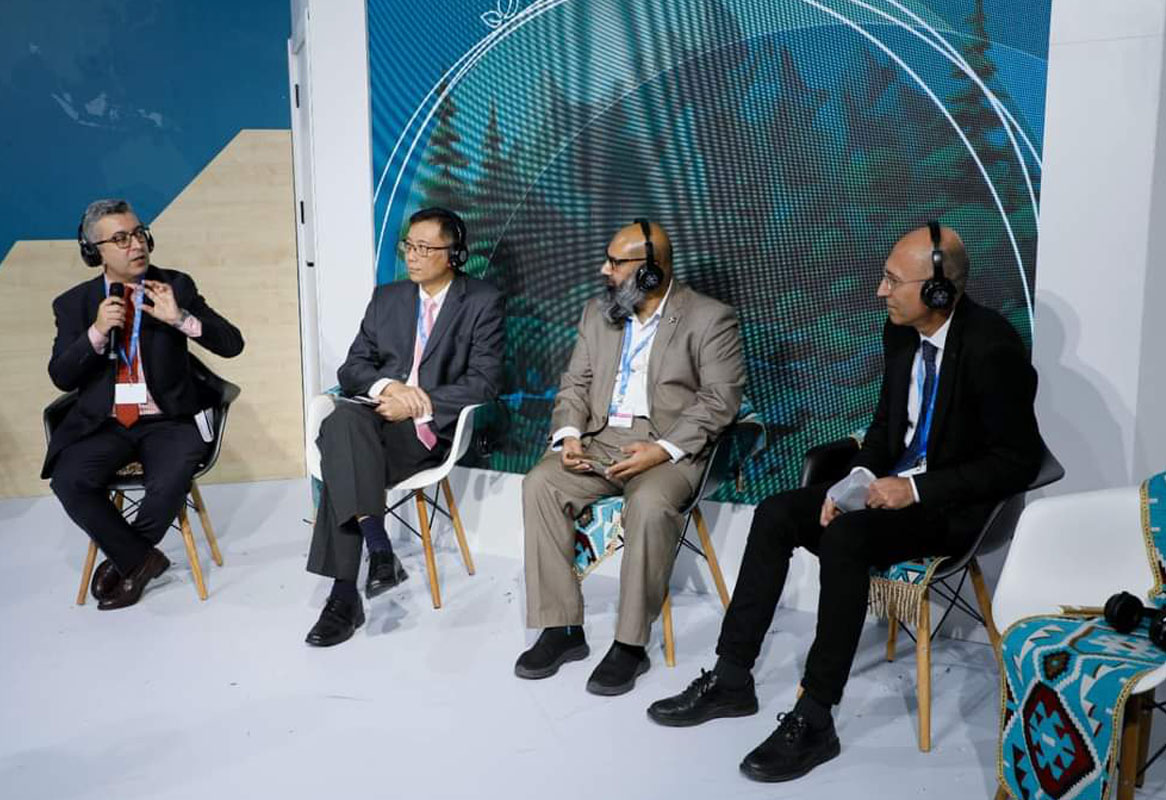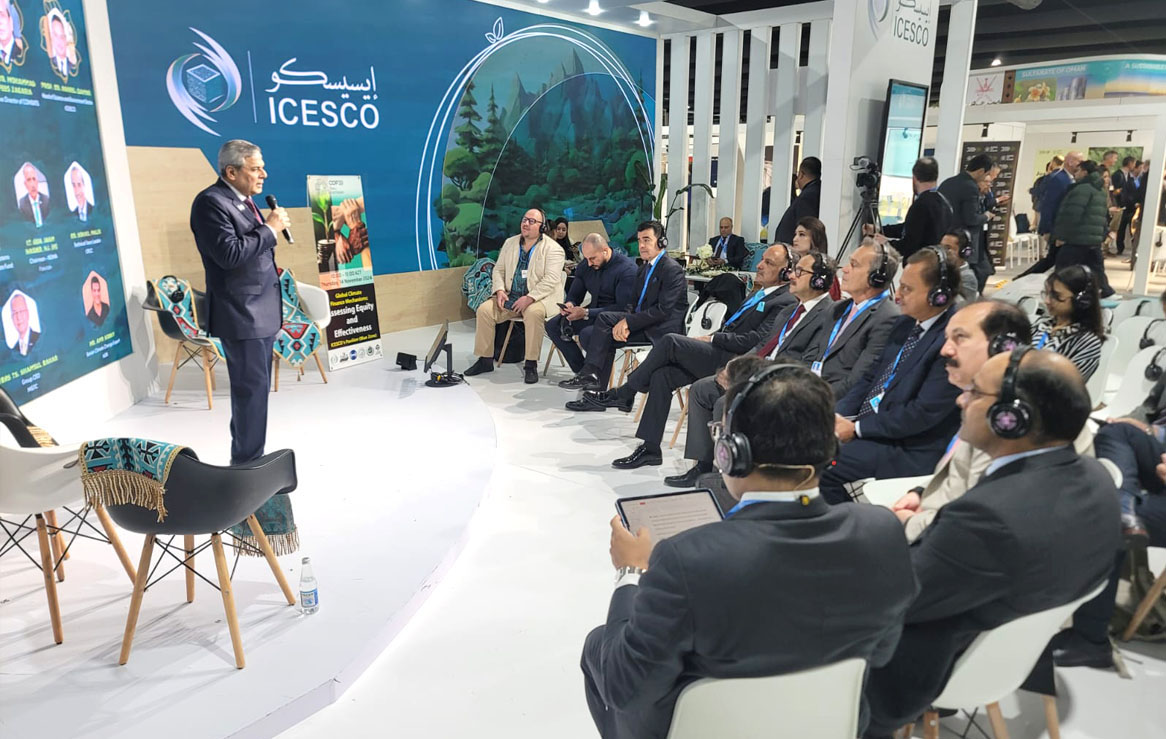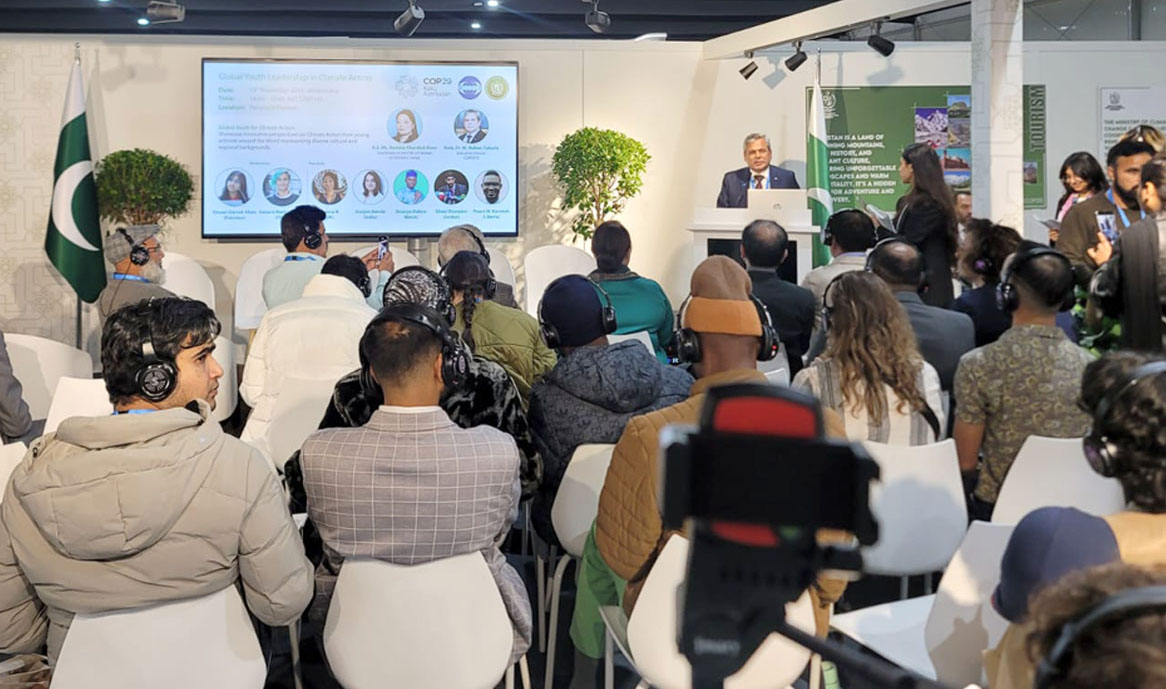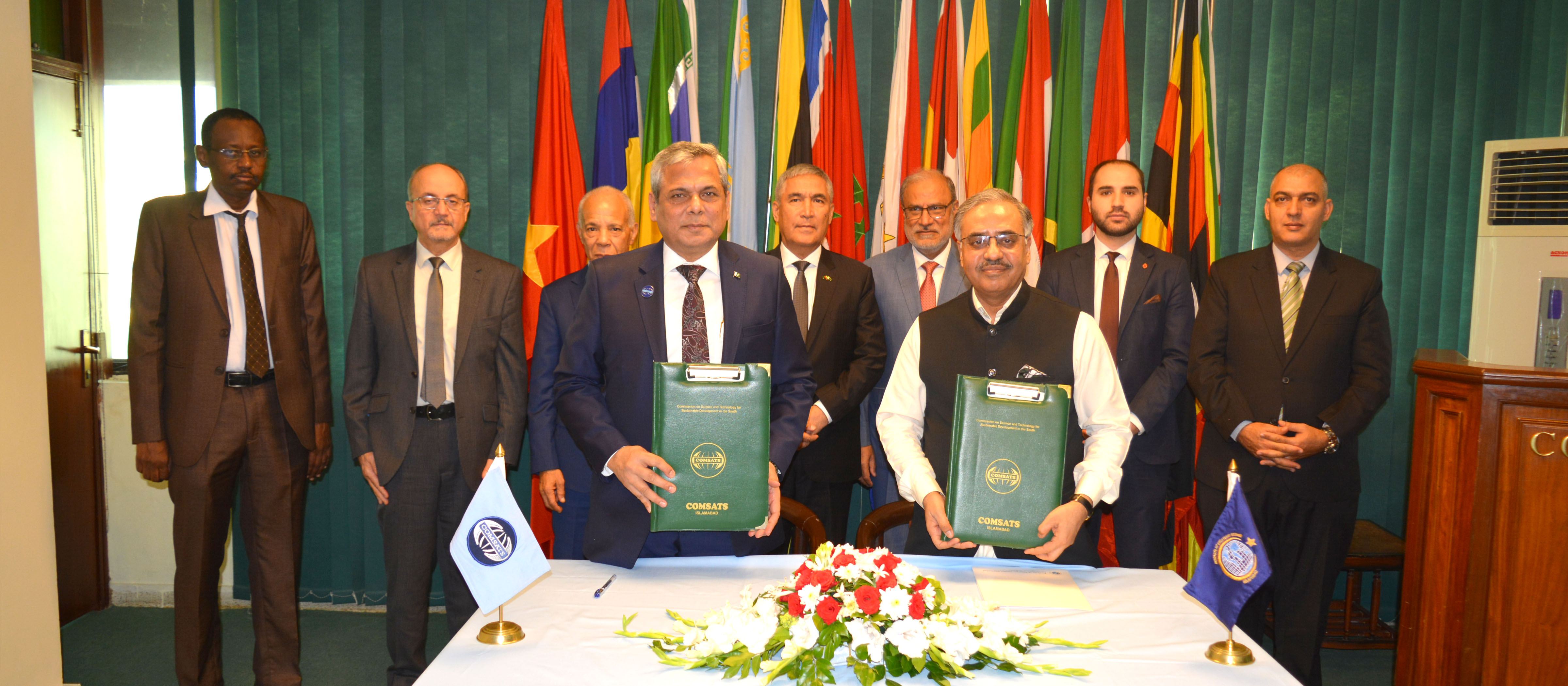A delegation of International Atomic Energy Agency (IAEA) led by the Director General, Mr. Yukiya Amano, 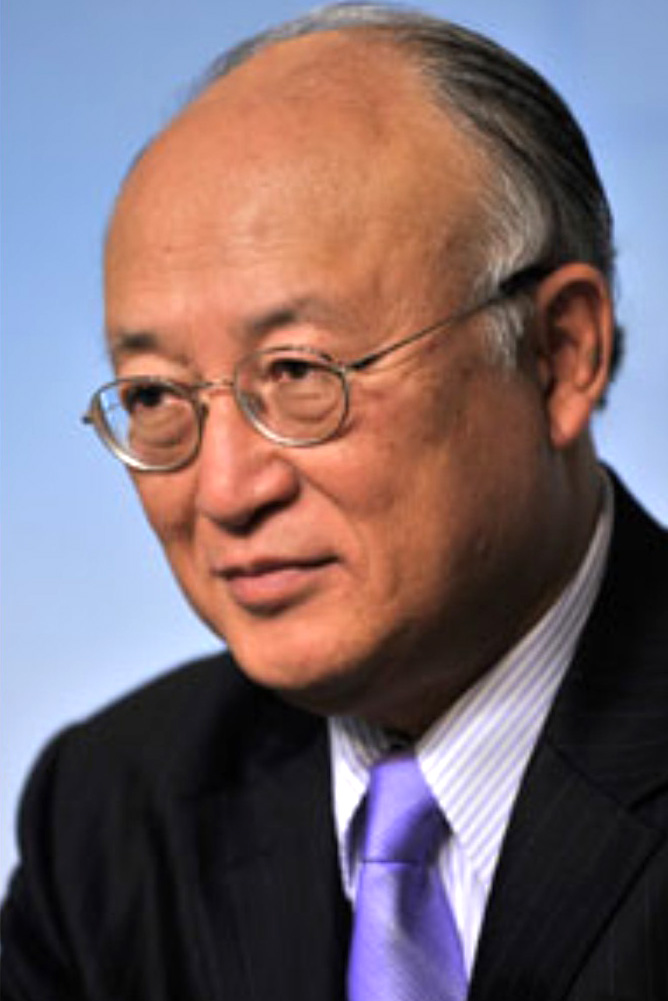 visited the Ministry of Science and Technology, Government of Pakistan (COMSATS’ Focal Point in the host country) on 12th March 2014, to share information about the role of IAEA in promoting peaceful uses of nuclear technology. The honorable Minister for Science and Technology, H.E. Mr. Zahid Hamid, welcomed the delegation members and briefed them about the programmes of various R&D organizations, regulatory bodies, and the two universities, including the COMSATS Institute of Information Technology (CIIT), working under the Ministry.
visited the Ministry of Science and Technology, Government of Pakistan (COMSATS’ Focal Point in the host country) on 12th March 2014, to share information about the role of IAEA in promoting peaceful uses of nuclear technology. The honorable Minister for Science and Technology, H.E. Mr. Zahid Hamid, welcomed the delegation members and briefed them about the programmes of various R&D organizations, regulatory bodies, and the two universities, including the COMSATS Institute of Information Technology (CIIT), working under the Ministry.
In connection with the possible support of IAEA towards the Ministry’s programmes, the Executive Director COMSATS, Dr. Imtinan Elahi Qureshi, informed Mr. Amano that CIIT offers graduate-level courses in Nuclear Sciences and has a well-equipped Radiation Physics laboratory. CIIT is also interested in setting up facilities of radiation sterilization using electron-beam technique. Dr. Qureshi observed that technical support of IAEA for the R&D programmes of CIIT would be highly appreciated.
Mr. Amano informed the participants of the meeting that the major activities of IAEA are focused on the use of nuclear technology for agriculture, health and power production. A ‘Programme of Action for Cancer Therapy’ is being executed under the Department of Technical Cooperation of IAEA. Similarly, in partnership with UN Food and Agriculture Organization (FAO), the IAEA has established a ‘Joint FAO/IAEA Division of Nuclear Techniques in Food and Agriculture’, which provides support in areas of pest control, plant breeding, soil and water management, food quality standards and preservation, and live-stock health and production. He remarked that IAEA is in the news mostly in connection with proliferation issues; however, its major segment of activities, which are less well-known, is for peaceful uses of nuclear technology. Mr. Amano expected that there would be about 17 % increase in nuclear power production worldwide by 2030. He informed that, currently, 437 nuclear power plants are in operation and 72 are under construction, mainly in Asia. He believed that a safeguarded use of nuclear power would be a contribution towards the mitigation of climate change impact. The safety standards of nuclear industry, he added, are much higher than other industries, and these are being further enhanced after the experience gained in Fukushima Daiichi episode three years ago. While regarding nuclear energy as a safe option irrespective of the negative perception of nuclear energy and ionizing radiations, he conceded that the long-time nuclear waste disposal requires more attention.
In connection with the role of universities in support of IAEA activities, the Dean, Faculty of Sciences, CIIT, Dr. Arshad Saleem Bhatti offered to provide IAEA prescribed radiation protection courses at CIIT, in collaboration with the Pakistan Nuclear Regulatory Authority (PNRA) and the Pakistan Institute of Engineering and Applied Sciences (PIEAS). A number of other proposals by the Heads of R&D organizations were also presented on this occasion. It was decided that a list of projects requiring IAEA support will be submitted to the focal point of IAEA in Pakistan, for evaluation and submission to the Agency.


